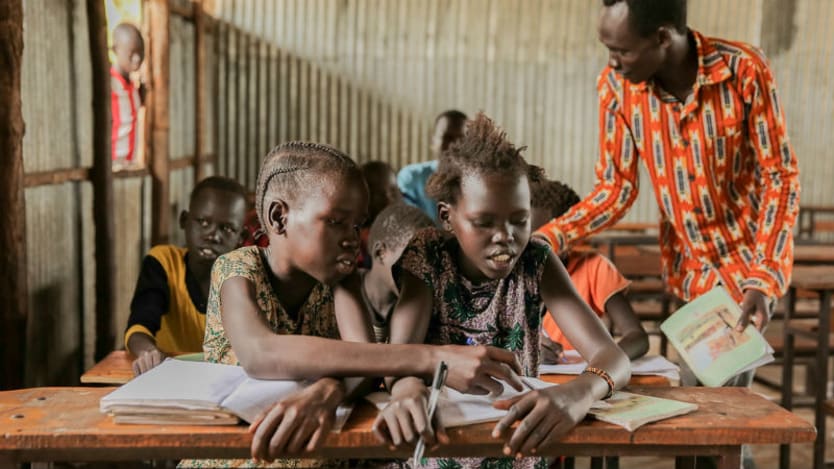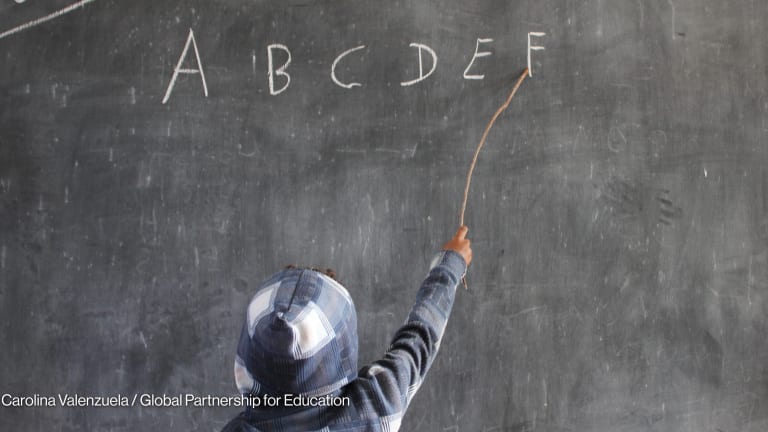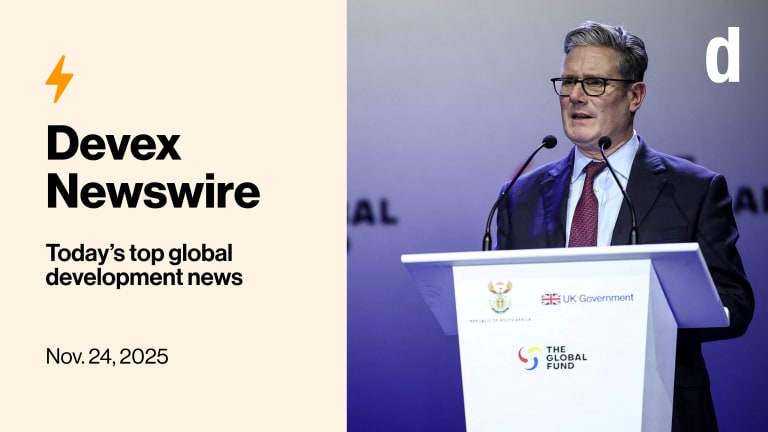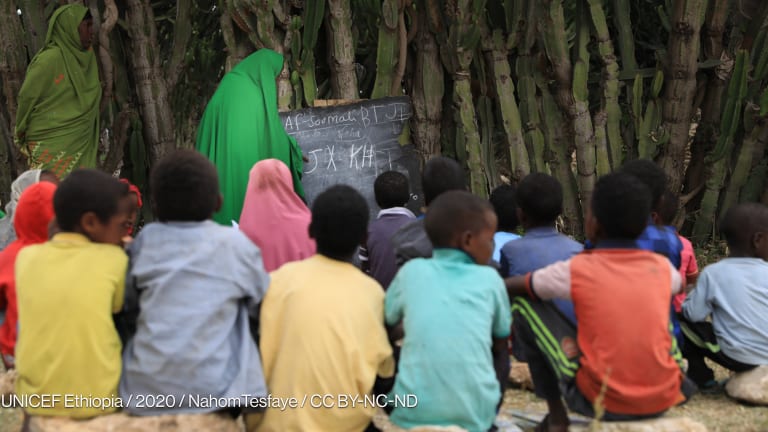
In 2016, at the height of the European refugee crisis, the United Nations General Assembly unanimously adopted the New York Declaration for Refugees and Migrants. The declaration was hailed as the foundation of a new approach by the international community to large movements of refugees and migrants, as well as to protracted refugee situations.
The adoption of the declaration launched a two-year process that delivered the Global Compact on Refugees. It provides a blueprint for governments, international organizations, and other stakeholders to ensure that host communities get the support they need and that refugees can lead productive lives.
“The Global Refugee Forum provides a once-in-a-lifetime opportunity to set a plan to close the refugee education gap, delivering quality education to the world’s 9 million refugee children and improving the quality of education of their host community peers.”
—The next step is for concrete pledges at the first-ever Global Refugee Forum — hosted by UNHCR this December in Geneva — to support the compact’s implementation.
The forum’s results will be a critical test of the international community’s commitment to the new ways of working envisaged by global compact. Failure to back the practical hospitality and policy commitments of the countries hosting large refugee populations will call into question the credibility of the compact’s promises and put wider humanitarian reform efforts at risk.
The excellent work of host countries, together with growing support for education in crises, means there is a real opportunity to ensure every refugee child has the chance to go to school. The compact promises to minimize the time refugee children spend out of education, with a target of no longer than three months after arrival in the country in which they have sought protection.
The case for education for refugees is clear: it’s the chief concern for refugee children and their parents. Speaking in Berlin on the urgent need to expand access to schooling for refugees, U.N. refugee chief Filippo Grandi said, “I have worked for refugees for 35 years and there is one constant message I hear from them — they want education, even before food.”
Refugees know that education provides the building blocks needed to recover, to create new lives in their host countries, and to gain vital knowledge and skills to take back to their country of origin, should they have the opportunity to return.
But the majority of refugee children face the double jeopardy of losing both their homes and their right to go to school.
Eighty-five percent of the world’s refugees live in developing countries, which face big challenges in delivering education to their own populations. Unsurprisingly when refugees do have access to school, the education they receive is often low quality.
It doesn’t have to be this way. The Global Refugee Forum provides a once-in-a-lifetime opportunity to set a plan to close the refugee education gap, delivering quality education to the world’s 9 million refugee children and improving the quality of education of their host community peers in the process.
How we can secure the future of school-aged refugees
This time last year we launched our call for a global refugee education action plan. It showed that we could deliver quality universal pre-primary, primary, and secondary education to the world’s refugees with just $11.9 billion in international assistance over five years.
While this looks like a lot of money, it is in fact a little more than two days of global military spending, which currently stands at $4.8 billion per day. For $1 million per day, we could secure the future of 7.5 million school-aged refugees.
“We must start by asking refugee hosting countries what they need and working out how we can get it to them.”
—To do this, we need to clearly set out what refugee hosting countries need and secure pledges and contributions against those needs.
Without an agreed statement of needs, the Global Refugee Forum runs the risk of soliciting pledges of support, however worthy, which do not address the most critical needs on the ground.
In order to reduce the risk of existing funding being re-pledged, we must also establish the baseline of available financing and support, ensuring that new pledges are genuinely additional.
A global plan, based on need, would act as an advocacy tool, crowding in government, philanthropic, corporate, and civil society support. It would assist in developing and coordinating a global response that can be adequately monitored and hold stakeholders accountable for delivering.
In short, if the Global Refugee Forum is to achieve its goal, we need to ensure that new, tangible pledges are made in support of the education-related commitments in the global compact and that these align with agreed priority needs.
More on education
► Global data dashboard aims to tackle education crisis
► New principles on the right to public education released
► South Sudan's future depends on getting children back in school
Education Cannot Wait’s replenishment in September is the perfect staging post, where donors will have the opportunity to support ECW’s innovative multi-year education plans, the majority of which will be in refugee hosting countries. These plans are the perfect instrument for agreeing what’s needed, providing catalytic funding, and then aligning financing.
In 2017, in response to the promise in the New York Declaration of a new way of responding to refugee movements, Djibouti, Eritrea, Ethiopia, Kenya, Somalia, South Sudan, Sudan, and Uganda came together at the First Regional Ministerial Conference on Refugee Education in IGAD Member States. They adopted the Djibouti Declaration, which commits them all — some of the poorest countries in the world — to provide refugee children with access to their national education systems without discrimination.
The IGAD countries have been meeting regularly since, and I’ve seen first-hand their impressive efforts to develop national plans to deliver on their commitment.
The generosity that these and other refugee hosting countries have demonstrated by opening their national education systems to refugees must now be matched by practical support from the international community.
We must start by asking refugee hosting countries what they need and working out how we can get it to them. It’s what we’ve promised to do, and as every child knows, it’s important to keep your promises. Your reputation relies on it.








